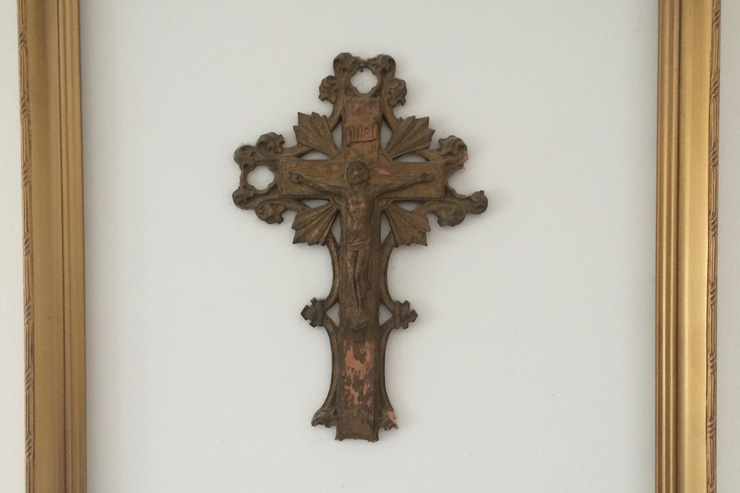 “What have you got for me today?”
“What have you got for me today?”
The woman on the telephone had a soft and gentle voice. Her tiny, floral-print, navy blue dress seemed to swallow her petite frame. Bony fingers with short, unpolished nails held a number two pencil, which hovered over a yellow legal pad. She held the phone in the crook of her neck. “Mmm Hmm…. Mmm Hmm….” She scribbled furiously yet daintily on the pad. “Okay, then, what else? Mmm Hmmm…Ok, ok, fine. Thanks, Hal.” She put the receiver down and dialed another number. “Hello, this is Marie. What have you got for me today?”
And so it went.
I was shadowing this woman in my first real writing job, working for a city newspaper. She was on the telephone with funeral directors, gathering information on the recently deceased. Her job was to train me in writing obituaries.
I will admit it.
I was uncomfortable.
My father had drilled into all of his children the importance of being grateful for work, the dignity of work itself, and the necessity of not being too big for our britches to prevent us from thinking we were so important we were above menial positions. So I expected really, to be writing something like obituaries as my first assignment at this job at the city newspaper. That didn’t bother me.
What did bother me, however, was that the process of writing obituaries seemed so cold and impersonal and small for something that had happened that was so significant. It seemed harsh to ask bluntly, “What have you got for me today?” in regards to a death. It amazed me that Marie came in each morning and simply dialed up the undertaker to find personal details of the life of someone who was no more, asking, “what have you got for me today?” And yet, it was the very question that needed to be asked.
With each call reality hit me: some family was grieving deeply. Some husband had lost a wife, or a family a father, or saddest of all, parents a child. It didn’t faze the newspaper obituary writer, and I think that’s what astonished me. Marie performed her task in a perfunctory manner, neither relishing the process nor despising it. It was simply something she had to do. “What have you got for me today?” was her saying, “Please give me the information I need to complete my task.” Then she carried on to do her job as best she could.
Matter-of-factly, this woman wrote down the necessary information on the legal pad, took it to an electric typewriter- and then showed me the format she wanted me to use to create a summary of a person’s entire life.
“We vary the wording somewhat,” she explained to me the very first time, “Sometimes this way….” And she showed me wording with the deceased’s name up front. “And sometimes this way.” Then she showed me a slightly different version. Several others followed. “It’s a standard format, but each life is different so we write it just a bit differently.”
“Okay,” I replied, trying to take it all in.
“We really try to make sure there are no spelling errors,” she continued, “ you have to check everything. If there is information missing, you need to call back to get it. Make sure you include this, and this and this.” And she filled in the precise details.
So I learned to follow Marie’s directions, calling the funeral homes each morning, one by one, to glean information. And I wrote up the obituaries, carefully, precisely, painstakingly sometimes, making sure the form was just right, that this Cecelia had an ‘e’ not an ‘i’ in her name, and that that Mr. Tom Jenkins wanted his father’s initials not full names used, and that in another case, although it was usually not done, the deceased woman’s cat had to be mentioned in the write-up or the family would be very upset.
Over time I came to realize what a kindness, even an act of mercy, writing obituaries can be. An obituary is usually the last public write-up that a person will ever have printed. A small mistake can cause suffering to the family. A small detail left out can be painful to survivors. No son or daughter of the deceased wants to wake up three days before the funeral of their beloved parent and see that his or her name is missing or worse- misspelled- in the obituary. Emotions run high when people die and a nicely written obituary is reassurance that this life mattered. I came to realize the importance of doing this small thing with precision- or as Mother Teresa would say, with great love.
I also, strangely, found myself learning something else from this experience — I found it useful to ask God Himself the very question that initially made me wince that very first day on the job, the question Marie asked each and every one of the funeral directors:
“What do you have for me today?”
I came to realize that by asking that question of God, I was opening the door to intimate knowledge and a sense of purpose. Once I know what God has in mind for me this very day, I can act intentionally and decisively, with precision and meaning and care. I can choose to live well, on purpose.
When Marie asked the funeral directors “What do you have for me today?” their answer was meaningful and final. God’s answers to that same question that I ask of Him are also meaningful and final. He shows me what He wants of me simply by how my day unfolds, by presenting me with opportunities and challenges.
God has many things for me each day. One day what He had in store was a thrilling moment, with a handsome young man on his knee after midnight Mass, before a roaring fire, presenting me with a black velvet lined box and a diamond ring. The man was proclaiming his love and asking me to be his wife. Another day God had something else for me all together. It was my surgeon brother-in -law walking up the sidewalk of our house on a Sunday morning- a day of rest of all days- holding a bag of bagels and bringing me the devastating news that I had cancer. Each day God answers the question What do you have for me today? in the ways that He will, mysteriously. Some things are good. Some are not… on the surface anyway. Some things are large to handle. Some are little things to enjoy. Just as death comes surprisingly…and sometimes not, the moments of my life are surprising and sometimes not, known and unknown, predicted and unpredictable and completely unexpected.
Unlike the obituary writer I once was, I am still crafting the life about which I write, with words and actions and attitudes. And I do this now, craft this life well and with intent, partly because of that hidden and short obituary-writing experience. I now live with precision and care, savoring each detail, and putting intent into each word and act because of what I know about life by writing about death.
I have learned a lot since I was 21 and shadowing Marie, but one of the most important lessons I gleaned is this: small things done with great love and care are important. I also know personally that because of a small, unseen, some may say menial job in the corner of a newspaper office many years ago, my life is richer and fuller, for it was there in that unexpected place I learned to ask of God
What do you have for me today?
And respond as though it makes a difference.
Because it does.
If you liked this article, please share it with your friends and family using the Recommend and Social Media buttons below and via email. We value your comments and encourage you to leave your thoughts below. Thank you! – The Editors














